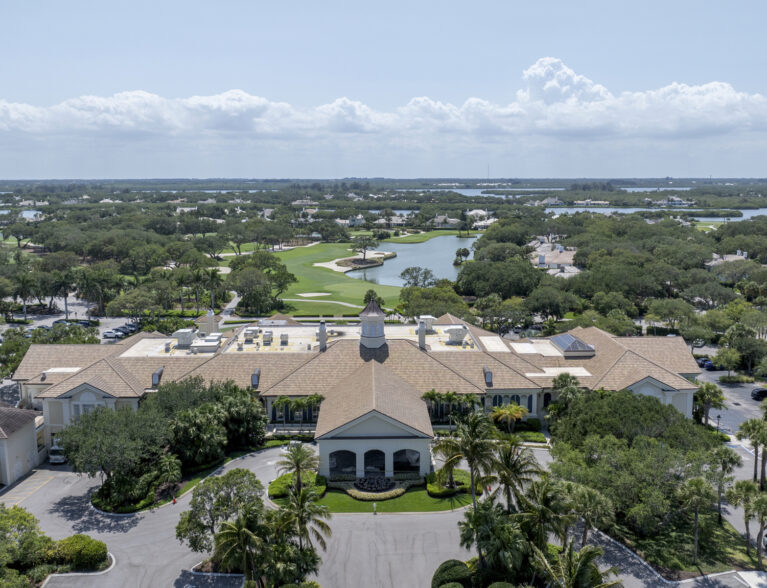
John’s Island residents continue to provide ever-increasing philanthropic support to local charitable organizations, this year granting another record-breaking amount of more than $3.45 million through its two funding groups – the John’s Island Community Service League and the John’s Island Foundation.
At the closing luncheon of the Community Service League, which provides grants for general operating expenses and program budgets, President Ellen Kendall announced that they had distributed $1,759,192 in grants and scholarships for the 2023-24 season, an increase of 17 percent over last year.
Included in that total were $1,479,500 in grants to 43 local agencies for 50 programs, $114,827 in scholarships to support 16 students, and $164,865 through the Marlynn Scully Strategic Fund, which funds grants that are either multi-year, involve collaborations, or are outside the normal cycle.
The JI Foundation, which funds capital projects and improvements, has also seen a substantial uptick in funding, providing $1,697,551 to 26 agencies, a 21.5 percent increase over last year. Included in the contributions were $1,056,867 in core grants, $600,000 in McCabe Leadership Grants, and $40,684 in accelerated grants.
Additionally, members of the two funding groups often proactively address issues confronting the community, and take leadership roles within various projects, such as the November 2023 launch of the Access to Justice Self Help Centers, to which both provided funding and brainpower. A grant this year from the Foundation will fund legal kiosks in Fellsmere and Sebastian.
A growing area of concern for both funders is the critical shortage of affordable housing.
“It seems to us that it’s a really big need, so we’re trying to do what we can to make a difference with that,” said Francie Cramb, grant co-chair with Theresa Kilman of the Foundation, which began tackling the issue a few years ago.
In 2022 they gave $200,000 to the Coalition for Affordable Homes to build a triplex for low-income veterans that was completed this year. And in 2023, they gave $100,000 to the coalition for the construction of an Accessory Dwelling Unit, a 442-square-foot ‘tiny home’ that will be completed in a few weeks.
This year, the Foundation awarded a $500,000 leadership grant to the Hope for Families Center, to double the size what will be called the John’s Island Foundation Emergency Family Shelter. Additionally, a $100,000 leadership grant was given to Habitat for Humanity to enable critical repairs to the houses of Habitat homeowners.
The Foundation also provided some $800,000 in combined grants to agencies for housing and facilities related expenses such as building renovations and repairs, plumbing, hurricane impact windows, a roof replacement and even an outdoor classroom.
The Service League has been equally engaged on the housing front, most recently, looking into the advantages of establishing a community land trust. The CLT model separates the value of the home from the value of the land it sits on; the land is owned by a community-based nonprofit and leased to the homebuyer. “We were looking for somebody to start a community land trust and Julianne Price, of the Coalition for Attainable Homes, said, ‘Well, we can turn the coalition into a community land trust,’” said Kendall.
The Service League is providing a strategic grant of up to $225,000 over a three-year period for the staffing and operation of the Land Trust, which has hired Valerie Kines as its new executive director.
“Our goal is to get some property, either donated or buy, and have a developer come in and build an apartment building that has like 50 units, 75 units, something that will make a difference in terms of having housing for workers,” Kendall explained.
“I think it’s going to be challenging, but I don’t think it’s impossible because there are developers who are focused on building affordable housing. We have to find the land, and it’s a many year project for sure,” Kendall added.
Mental Health is another major area of concern.
At the luncheon, JICSL board member Sallyan Pelletier spoke about a new program they worked on with the Mental Health Collaborative. The newly launched IRC Clinician Development Cohort Program will be administered by Wes Samons, MHC executive director.
The objective of the multi-year strategic grant of up to $400,000 is to add an estimated 32 therapists to the current 12 licensed therapists at eight local nonprofit agencies over the next eight to 10 years.
Currently, the wait time to see a therapist is two to three months. The goal is to recruit and retain licensed clinicians, and interns working on their licensing, by offering settle-in bonuses for moving here and yearly stay bonuses to keep them here up to three years, thereby reducing the wait time to one week.
And the Foundation granted $50,000 to the Mental Health Association for office equipment at its new Parent and Child Center which opened May 3, across from its Walk-In and Counseling Center.



